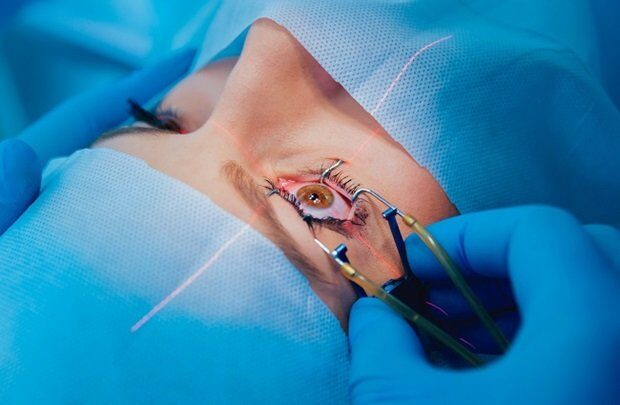Laser eye surgery commonly referred to as LASIK (short for Laser-Assisted In Situ Keratomileusis) is a popular vision correction procedure that uses a specialized laser to reshape the cornea. By adjusting the curvature of the cornea, LASIK can significantly improve vision and reduce or eliminate the need for glasses or contact lenses.
This procedure has seen a surge in popularity in cities like New York, thanks to the advanced technology and highly trained ophthalmologists available. NYC residents, often driven by a preference for high-quality services and convenience, are increasingly turning to LASIK to enhance their vision.
However, LASIK isn’t suitable for everyone. Undergoing this surgery without meeting the necessary criteria can lead to complications ranging from minor discomfort to serious vision problems. These risks highlight the importance of proper screening before moving forward with the procedure.
Potential Risks of LASIK for Ineligible Patients
Some complications that can occur when LASIK is performed on unsuitable candidates include:
- Eye infections
- Excessive dryness
- Problems with the corneal flap (e.g., dislocation or tears)
- Undercorrection or overcorrection of vision
- Vision regression
- In rare cases, vision loss
To minimize such risks, it’s critical to understand who qualifies for the surgery. Below is a detailed guide on the common eligibility factors.
Key Eligibility Criteria for LASIK Surgery in New York
1. Age Requirements
One of the first qualifications is age. Candidates must be at least 18 years old, although many surgeons prefer patients to be over 21. This is because vision tends to stabilize in early adulthood, and performing the procedure before this stability is reached increases the chances of regression.
2. Corneal Health
Since LASIK involves reshaping the cornea, a healthy and sufficiently thick cornea is essential. Individuals with corneal diseases such as keratoconus a progressive thinning of the cornea are typically not candidates.
Additionally, those with chronic dry eye conditions may experience worsened symptoms after surgery. Such individuals may be better suited for alternative corrective procedures, such as Phakic Intraocular Lenses (IOLs).
3. Prescription Limits
LASIK is most effective for individuals with mild to moderate vision issues. It can correct:
- Nearsightedness (Myopia): Up to -8.00 diopters
- Farsightedness (Hyperopia): Up to +3.00 diopters
- Astigmatism: Up to 4.00 diopters
If your prescription exceeds these ranges, LASIK may not offer the desired results, and other corrective methods might be more appropriate.
4. Overall Health Status
Beyond eye health, your general physical condition also plays a role. Certain systemic conditions can affect healing and increase surgical risk. These include:
- Uncontrolled diabetes – May lead to slow recovery and fluctuating vision post-surgery
- Autoimmune disorders – Conditions like lupus or rheumatoid arthritis can impair the healing process
- Pregnancy or nursing – Hormonal changes during this time can alter vision temporarily, which can affect both the surgery’s outcome and accuracy
Women who are pregnant or breastfeeding are typically advised to postpone surgery until their hormones—and consequently, their vision have stabilized.
5. Comprehensive Eye Evaluation
A thorough eye exam is essential prior to surgery. This evaluation typically covers:
- Corneal thickness and shape
- Pupil size in low light
- General ocular health
This step allows the surgeon to determine whether LASIK is a safe and effective option for you. Skipping this evaluation or treating it as a formality can increase the risk of complications.
Final Thought
LASIK has transformed lives by restoring clearer vision and reducing dependency on corrective lenses. But like any medical procedure, it’s not without risks especially for those who don’t meet the criteria. That’s why consulting with an experienced eye care professional is critical.
If you’re considering laser eye surgery in NYC, make sure to undergo a full diagnostic assessment, discuss your health history, and set realistic expectations. LASIK may not give you perfect vision, but for the right candidate, it can bring a dramatic improvement in visual clarity and quality of life.



